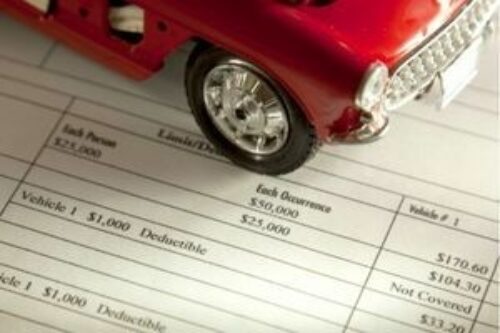
Buying or Selling a Used Car? We Can Help...
Buying a used car can come with its challenges, especially when purchasing cars privately. How do you guarantee the car for sale has not been stolen? Is there any outstanding finance owed on the car? Has it been written off or involved in an accident in the past? How do you ensure the seller is who he claims to be? Is the car mechanically sound? Our articles will help guide buyers through this process.

Used Approved Cars: Checked, Tested and Guaranteed
Think all used cars are the same? Well, think again! Here we'll explain what it means to be used approved and what the difference is against a used car.

Top Tips When Buying a Used Car Privately to Avoid Getting Ripped Off
You’ve spent weeks searching, scoured endless sites before finally finding your perfect car, but there’s a catch – it’s from a private seller. While buying from a dealership offers more buyer protection there are still many advantages to buying a car privately, especially when it comes to attaining your ‘dream car.’

8 Essential Tips for Buying a Car Online
The way we buy cars is evolving. It used to be that the only way to buy a car was to visit a car dealership or a used car showroom; however, in recent years things have changed as more methods of buying and selling cars have entered the scene.

Your Guide To The Pros And Cons Of Buying An Ex Demo Car
Are you thinking about treating yourself to a new set of wheels? Perhaps it’s time to splash out on a family SUV to accommodate the little ones. Or maybe they’ve all grown up and flown the nest, and now’s the perfect opportunity to downsize and reward yourself with that sporty model you’ve had your eye on.

Checklist: What to Look for When Buying a Car
Buying a car is a huge decision. It’s one of the most expensive things we purchase, after property. But with so many options and potential pitfalls, it’s hard to know what to look for. Especially when you’re not a qualified mechanic.

Checklist: Everything you need to do when you buy a car
Buying a car is a complicated process - knowing what to do when buying a car is important to ensure you get the best car and deal for you.

How Buying A Car Has Changed Since Coronavirus
Are you considering whether to buy a car during coronavirus? The outbreak has caused a great deal of uncertainty for both businesses and customers. Changes in the environment impact our lifestyle choices and buying decisions. Buying a new car is not an exception, especially when so many things have changed in the automotive market.

What Is The Best Way To Sell A Car?
Are you looking for guidance on how to sell your car? Perhaps you’ve decided that you and your loved one can cope with one vehicle between you, or maybe it’s time to shift the motor that’s been sat in the garage for months on end. It could be that you want to freshen things up and go for a newer model.

Find The Best Second Hand Electric Car
Buying the best second hand car can feel like a waiting game, stalling for just the right model to come along. But your options are shifting - new electric models are now increasingly available to widen your scope, equipped with a variety of savings and environmental benefits.

A Car Buying Guide: Future Proof Your Next Purchase
Future proof your next purchase with our comprehensive Buying Guide covering the car buying journey essentials.
From navigating the marketplace to knowing where to get the best deals and which car is really best for you – we’ve broken down what can be an overwhelming journey to buying your next car.

Money Talk: HP & PCP Car Finance Deals Explained
Car finance deals are a common way to buy a new car, with low interest rates making them much more affordable. Motorists can choose from lease purchase, contract hire, PCP (Personal Contract Purchase) and HP (Hire Purchase).

Jardine Motors tests the nation’s drivers on their car maintenance knowledge
The strange nature of the last years has totally changed the way that we live. We are spending more time than ever at home, and for many of us that has meant that we are driving less. With millions now working from home, cars that were previously used daily have been stuck on driveways for weeks on end.
DISCOVER MORE
Visit our YouTube channel, where you can find more car reviews and walkarounds by our fantastic experts.



